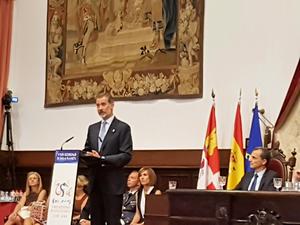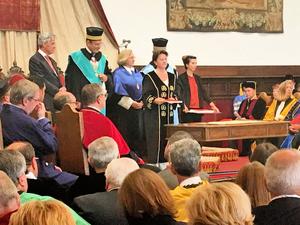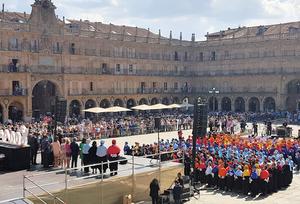National University of Public Service signed and acceded to the Magna Charta Universitatum at a ceremony held in Salamanca, Spain on 18 September, 2018.
The document of the Magna Charta Universitatum was created 30 years ago, on the 900th anniversary of University of Bologna's foundation, and was initially signed by 388 university rectors from five continents. The document lays down the principles of institutional autonomy and independence for universities, and includes guidelines on how future universities should function and formulate their self-identity. The document was created and is being constantly amended with a view to addressing the challenges for Europe and the modern world and determining the role of universities in this process. Methods available to universities for this purpose include - among others - joint programs, scientific cooperation and student exchange corroborating the statement that universities “as they did in the early days of their history, promote the mobility of students and lecturers, and, in addition to retaining national diplomats, regard the general policies on the award of grants and on the equivalence of qualifications, titles and exams as an important factor in the fulfilment of their mission.” The Magna Charta forms the basis of any further declaration or proposal on European academic cooperation.
From five continents, numerous universities have signed the document in the past thirty years. The thirtieth anniversary celebrations took place in Salamanca, whose university celebrates the 800th anniversary of its establishment this year. At the ceremonial anniversary chaired by Philip VI, king of Spain, on behalf of Prof. Dr. András Koltay, Rector of National University of Public Service, Dr. Györgyi Nyikos, Vice-Rector for International Affairs signed the Declaration of Accession together with the leaders of several other prestigious universities.
Text and photos: Dr. György Borók


